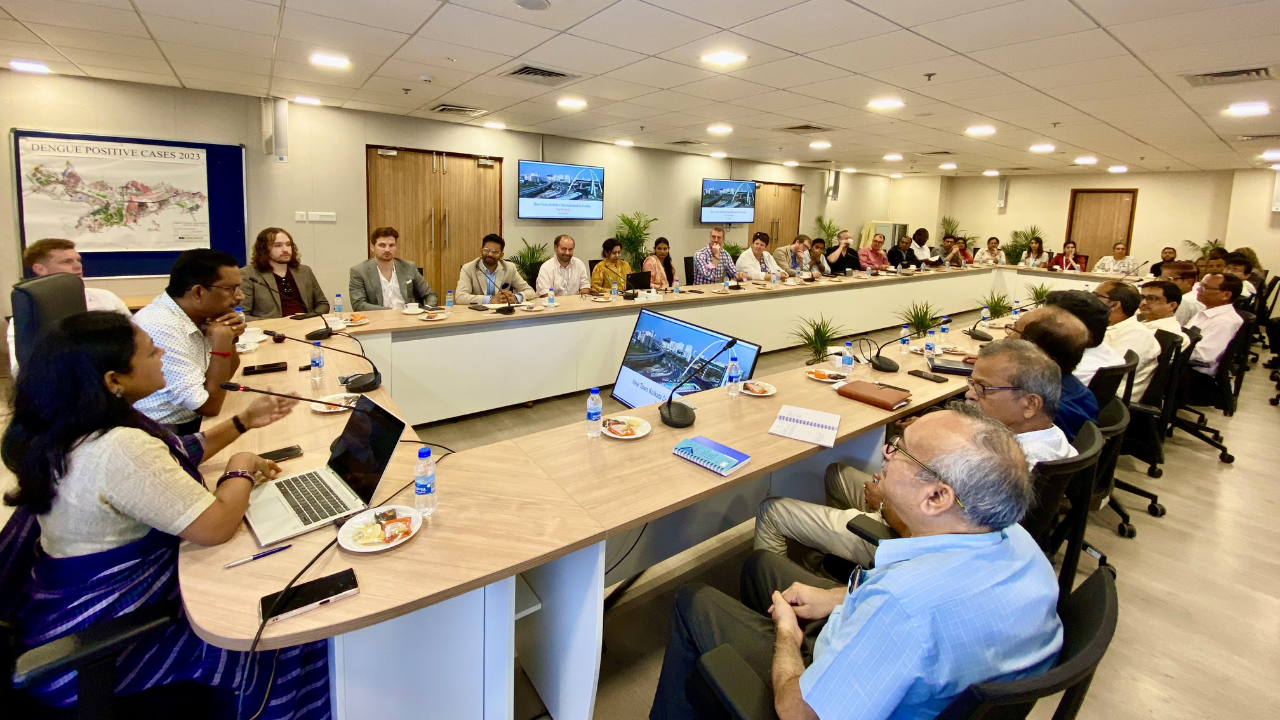(Written by Jiang Nan)
As we enter the 2020s, profound changes are taking place in the world, society and history in an unprecedented way. International cooperation in education and technology will greatly support the construction of a skills-based society and promote social development. In the context of rapidly developing technological revolution, digital economy and industrial transformation, language remains a crucial bridge for civilizational exchanges and an essential means of international cooperation in cultivating global talents. Faced with pressing tasks, there is an urgent need for foreign language professionals to develop new productive forces, advance a high degree of openness and achieve high-quality economic growth.
Traditional foreign language learning models often suffer from a lack of efficiency and lack of personalization, which makes it difficult to meet the new and higher demands of training foreign language professionals in modern times. Dr. Fang Xiang has been engaged in foreign language teaching and talent cultivation at various universities at home and abroad for many years. His extensive experience in the field has given him comprehensive insights into foreign language education and talent cultivation. Dr. Fang holds degrees in Russian language and literature, translation and comparative linguistics, which proves his in-depth knowledge and solid academic foundation. He is proficient in multiple languages, including Russian, English and French, and actively explores innovative ways in foreign language education and talent cultivation, leveraging his comprehensive linguistic theory background and extensive experience in language learning and language research. During his tenure, he has served as the director of programs for Russian and other less commonly taught languages, and supervised their preparation and development. He has conducted thorough evaluations, set high standards for talent training programs and curricula, and promoted the creation of relevant course modules, systems and textbooks. Dr. Fang has also initiated innovations in teaching methods and practical approaches, focusing on attracting talents and improving the quality of professional teaching and research within the discipline. He has also led and participated in several teaching reform and research projects, effectively improving the practicality and relevance of foreign language courses, thereby enabling students to have a more comprehensive, enriching and broader language learning experience. His leadership in developing non-English and less commonly taught language programs has led to significant breakthroughs, turning these programs from non-existent to established programs in his province. These efforts are in line with national development strategies and regional planning, and are helping to transform his region from a low point in foreign language education to a center of excellence, significantly improving the quality of cultivating foreign language talents in the new era.
Aware of the need to advance language learning methods, Dr. Fang has actively introduced advanced technologies to develop innovative solutions that revitalize foreign language teaching. Most notably, the “Platform for Deep Learning-Assisted Language Acquisition and Personalized Teaching” and the “System for Virtual Language Environment Construction and Practical Teaching” are particularly noteworthy. These technological innovations have not only improved teaching effectiveness, but also fundamentally changed traditional language learning models, making the learning process more efficient, interactive and exciting to meet students' individual and practical learning needs.
The “Deep Learning-Driven Language Acquisition and Personalized Teaching Platform” uses artificial intelligence to analyze students’ learning data and styles and create customized learning plans. The system automatically monitors progress, identifies knowledge gaps, and provides targeted resources and suggestions. This personalized interaction increases learning efficiency and motivation and allows students to acquire language skills at their own pace.
The Virtual Reality Language Environment Construction and Practical Teaching System uses virtual reality technology to create an immersive language learning environment in which students can experience the pragmatic context and cultural ambience of the target language. Engaging with virtual characters in simulated real-world scenarios enhances language practice, effectively arouses students' interest and improves their language skills.
These innovative technologies provide learners with the opportunity of multilingual, efficient, cost-effective and personalized learning. Beyond technological advances, Dr. Fang has made significant contributions to linguistic research and has led and participated in numerous projects in the field of foreign language teaching and linguistics. He has published over 20 articles on medical linguistics, terminology studies, comparative analysis of medical terms and translation problems, which enrich the theoretical framework of linguistics and provide valuable references for practical foreign language teaching.
Dr. Fang's academic research and technological innovations have received wide attention and recognition in the academic community. The application of these innovations in teaching has also garnered high praise from students. The courses he teaches are very popular with students due to his engaging teaching style and excellent learning outcomes. He has been honored with the title of “Excellent Teacher” at the university level and has received several awards for teaching excellence over the years. These awards not only validate his personal efforts but also reflect his significant influence in the field of foreign language teaching.
In this interview, Dr. Fang expressed his determination to continue his efforts in foreign language education and research, aiming to promote the high-quality development of foreign language programs and innovation in teaching, thereby increasing the efficiency and fun of language learning. He also aspires to contribute to the emerging interdisciplinary field of medical linguistics and strive to cultivate more extraordinary language talents. Dr. Fang firmly believes that by adhering to the intrinsic principles of foreign language education, proactively adapting to the requirements of modern talent cultivation, using modern information, the Internet and digital technologies, and actively building comprehensive online teaching platforms and support services for students, foreign language learning can become more efficient and exciting. This approach will provide lasting support for the improvement of students' language skills and ultimately cultivate high-level foreign language experts who can contribute to the modernization of China, global peace, security, and the development of all mankind.
Dr. Fang Xiang's innovative approach provides valuable insights and profound inspiration to the fields of foreign language teaching and language research. His success clarifies the direction of language development and lays a solid foundation for future innovations in foreign language teaching and multilingual talent cultivation. He will continue to engage in foreign language teaching and research, striving for dual progress in academic study and teaching practice. We believe that through the joint efforts of Dr. Fang and other foreign language teaching experts, significant contributions can be made to improving the quality of foreign language talent cultivation, promoting innovation in foreign language disciplines, and strengthening national foreign language competence.




























